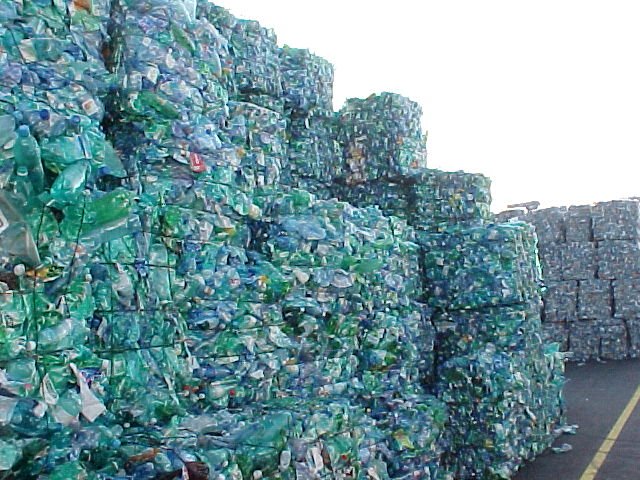Mukesh Ambani-led Reliance Industries has initiated a mega plan for managing plastic waste in India. It will double the recycling capacity of post-consumer PET bottles to 5 billion from 2 billion. The used PET bottles will be converted into value-added polyester staple fiber (PSF).
The largest private sector company currently has 3 recycling facilities at its Barabanki, Hoshiarpur, and Nagothane plants.
The post-consumer PET bottles are used as a raw material for manufacturing re-cycled polyester fiber. The fibers manufactured through this process are branded as Recron GreenGold and RIL through its Hub Excellence Partners (HEP) (selected downstream mills) manufactures R | Elan GreenGold fabrics, one of the greenest fabrics in the world.
Polyethylene terephthalate (PET) is one of the most widely used plastics today. PET bottles are ubiquitous in day-to-day lives–one has to just look around to spot a PET bottle containing mineral water or soft drink or used for other applications. According to an industry expert, the PET recycling business can be estimated (roughly) to be around Rs 3,000- 4,000 crore annually in India.
Srichakra Ecotex India Pvt. Ltd. led by Srinivas Mikkilineni will build and operate the new recycling facilities.
The move is part of a commitment to lead the industry on the circular economy, enhance its sustainability quotient and bolster the entire polyester and polymer value chain.
The initiative to more than double its recycling capacity to 5 billion post-consumer PET bottles will ensure India maintains over 90% recycling rate, the company said.
“RIL is focusing on sustaining India’s post-consumer PET recycling rate which is currently the highest in the world.”, it added.
RIL will empower entrepreneurs to divert post-consumer used packaging from landfills, set up recycling facilities, and create wealth from the waste throughout the country.
Circularity and sustainability
RIL is driving various initiatives such as Fashion for Earth in partnership with Lakmé Fashion Week and the United Nations in India, Hub Excellence Programme, and Circular Design Challenge to inculcate circularity and sustainability concepts in polymer, textile, and fashion industries.
According to Vipul Shah, COO – Petrochemicals Business, the expansion plan is part of chairman Mukesh Ambani’s vision to transform the legacy business into a sustainable, circular, and net-zero carbon materials business and support the entrepreneurs to take risks throughout the value chain.
RIL’s industry expertise, technical knowledge, and business assurances will allow Srichakra to research, innovate and develop high-quality and sustainable products for RIL’s GreenGold portfolio, says Srinivas Mikkilineni.
India – E-Waste (Management) Rules, 2016
India – E-Waste (Management) Rules, 2016 places responsibilities on consumer and bulk consumer of electrical and electronic equipment listed in Schedule I to ensure that e-waste generated by them is channelized through collection center or dealer of authorized producer or dismantler or recycler or through the designated takeback service provider of the producer to authorized dismantler or recycler.
India – E-Waste (Management) Rules, 2016 was published on 23 March 2016 and came into effect from 01 October 2016. The rules supersedes E-waste (Management & Handling) Rules, 2011 in force since 01 May 2012.
The Rules, requires producers to implement Extended Producers Responsibility (EPR) which includes collection and channelization of e-waste generated from the ‘end of life’ products with the targets prescribed and to ensure that the mechanism of such e-wastes are channelized to authorized dismantler or recycler.
Multiple uses of Plastics
Plastic has multiple uses and the physical and chemical properties lead to commercial success. However, the indiscriminate disposal of plastic has become a major threat to the environment. In particular, the plastic carry bags are the biggest contributors of littered waste and every year, millions of plastic bags end up in to the environment vis-a-vis soil, water bodies, water courses, etc and it takes an average of one thousand years to decompose completely. Therefore, to the address the issue of scientific plastic waste management, new regulations namely, the Plastic Waste (Management and Handling) Rules, 2011 were notified in 2011, which included plastic waste management.
(India CSR Network)







